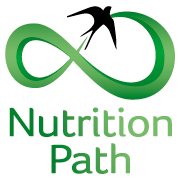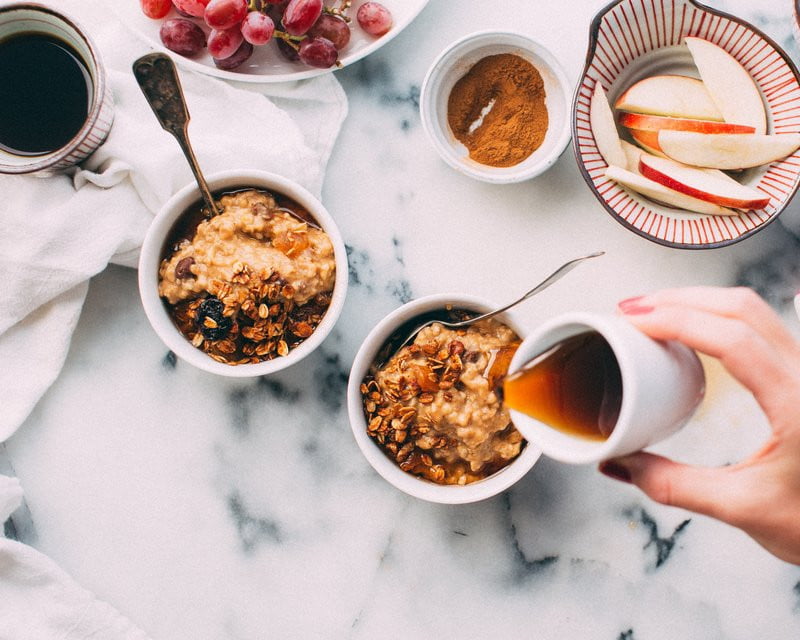If you’re cutting down sugar and find it impossible to drink tea or coffee without any sweetness, don’t panic- it’s part of the process for lowering sugar.
If you’ve been hitting it hard when it comes to sugar (even without knowing about it, thanks to hidden sugars in food) for a while, your taste buds are accustomed to sweet tastes and the more sugar you consume, the more the threshold increases.
The good news is that it only takes a few weeks of sticking to your daily sugar intake (5-6 tsp women, 7-8 tsp men) and your taste buds will adjust. Kale and beetroot will become delicious again and Oreos may start tasting incredibly sweet- who knew?
With all the contradictory information available, what do you choose to sweeten your coffee or breakfast in the meantime?
Let’s get one thing clear: low calorie does NOT mean that it is better for your health and hence I strongly recommend steering away from artificial sweeteners, completely. Newest research shows that artificial sweeteners contribute towards blood sugar imbalance, lead to weight gain and may contribute to serious chronic illness like Alzheimer’s, dementia and cancer (1).
Instead, check out some of my favourite sweeteners derived from nature that can help in the transition of going off sugar.
Stevia
Extracted from stevia plan in South America, stevia is around 300 x sweeter than table sugar. Although it’s derived from natural sources, make sure you use it sparingly as, due to its level of sweetness, it can alter your taste buds to adapt to sugar better.
Choose raw version when possible or the least processed form, as conventional brands might use bleach and other toxins, which will lead to hormone imbalance (including insulin).
Maple syrup
Maple syrup does contain a fair amount of nutrients and anti-oxidants, including zinc, calcium and manganese. Although these dosages are minimal to hugely contribute to your daily nutrient intake, it helps slow down the absorption of maple syrup, which means that the blood sugar spike is not as high as with table sugar.
Once again, you want to get the least processed brand on the market, make sure it is organic and as dark as possible in colour, as this means it contains an abundance of antioxidants.
Tip: make sure you seek out your maple syrup in a health food store or a speciality merchant, as chances are your local supermarket chain will only have the heavily processed versions.
Honey
Although this is naturally produced by bees, there is a lot of confusion whether honey is a suitable substitute for sugar. Just like with other alternatives, all depends on processing methods. Honey is packed with antioxidants, like polyphenols and a variety of vitamins, but it has to be raw and unpasteurised. Sadly, majority of brands in the supermarket do not fall under this category and processed versions affect blood sugar just like sugar syrup would. Seek out a local honey in a health foods store or a farmer’s market.
Watch out: when you find a raw unpasteurised honey, make sure you do not use it in hot drinks as it becomes toxic in high temperatures.
Monk fruit
One of the ‘newbie’ sweeteners in the Western world, monk fruit has been grown and used in Chinese medicine as luo han guo since ancient times. Derived from a fruit, this sweetener option is high in antioxidant count and may provide blood-sugar-balancing and anti-inflammatory effects (2). It’s also 100- 250 x sweeter than sugar.
Watch out: Although a beneficial sweetener to use, monk fruit can be incredibly difficult to source locally as it comes all the way from Asia. Sadly, it can prove even more challenging to find a version that’s organic.
Bottom line
Have you noticed that it’s not just as black and white as using honey or stevia in every situation as a suitable alternative? It’s incredibly important to consider methods of production and processing (the less of them, the better), additives and sourcing.
The well-sourced substitutes for sugar may prove to be much more expensive, but it is for a good reason- you will have to pay for good quality.
However, considering how much sweeter some of these are than regular table sugar, you won’t need to use much of them. Also try and use only a little bit as it’s a good opportunity to wean yourself off sweetness quicker.
Using these substitutes should only act as a short-term solution, until you transition to having less sugar and sweet alternatives in your diet, as long-term use of these will also affect your blood sugar levels.




